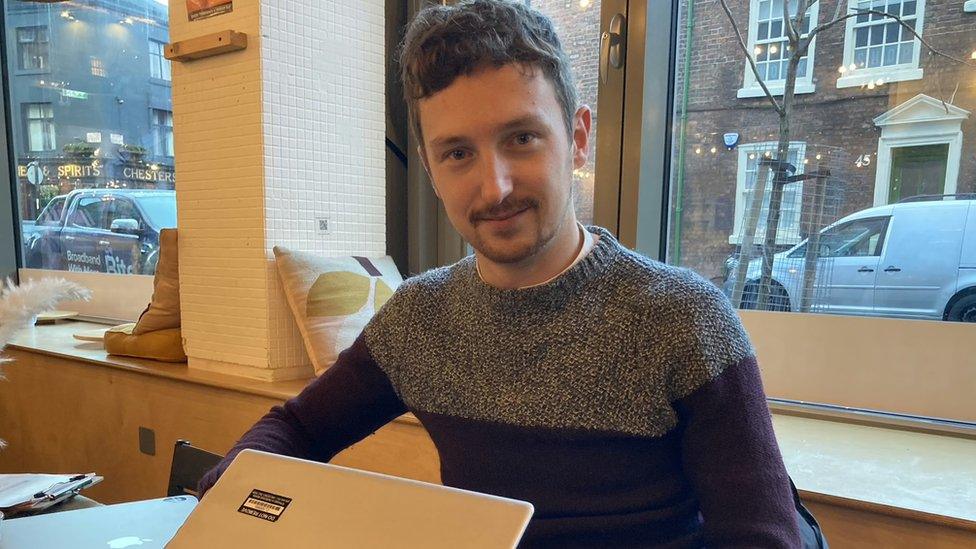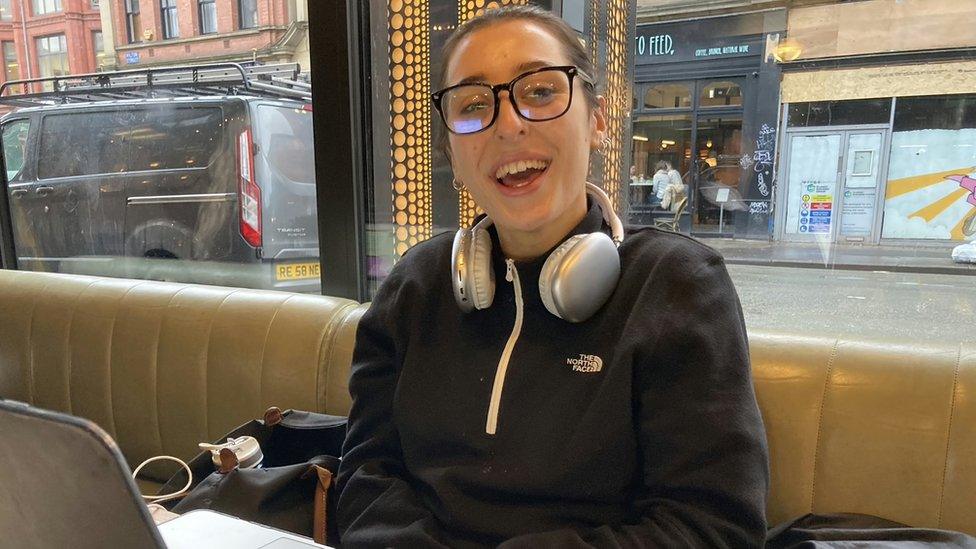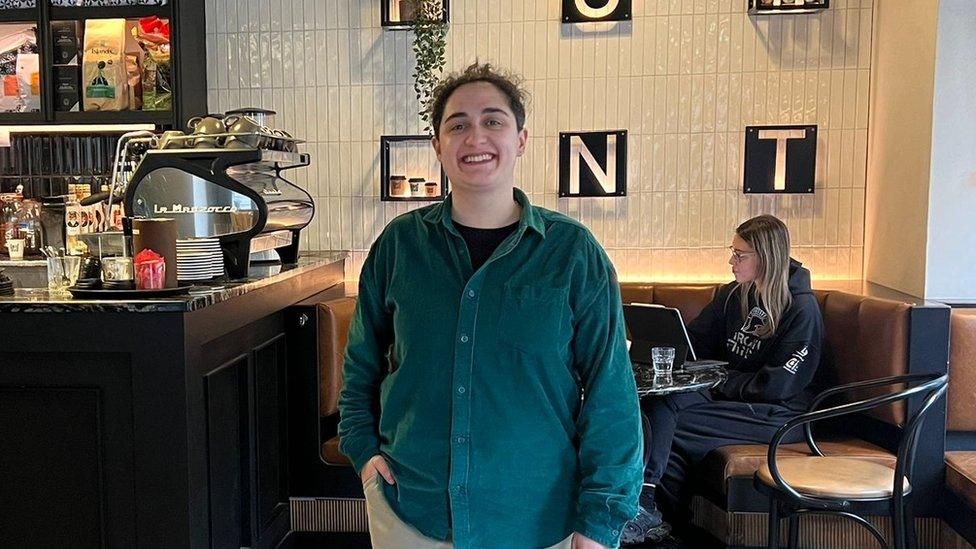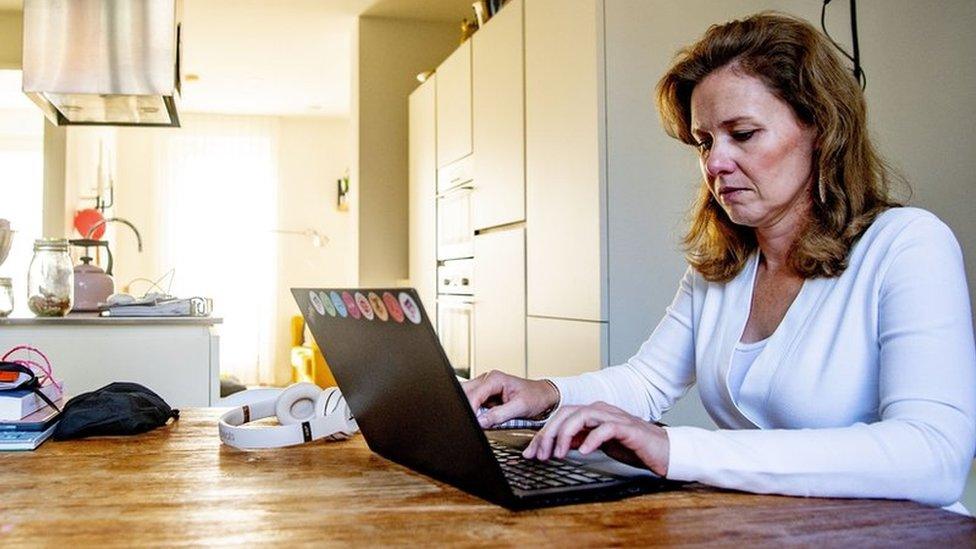Cost of Living: The cafes helping remote workers save on bills
- Published

Robert Aston said he wraps up in blankets at home
With energy costs showing no signs of slowing, more and more cafes, bars and hotels are offering warm surroundings for remote workers feeling the pinch.
The Covid lockdowns may be over but home working is still in vogue and, while convenient for many, often means soaring heating bills.
Last year the number of so-called hybrid workers in the UK almost doubled, latest figures show.
One council worker is among many who have found a cost-saving haven.
The 29-year-old, who works for an authority in Greater Manchester, goes to his local café The Feel Good Club on an average day.
He said: "It can be cold working from home so it's nice to come somewhere where you're not paying for the heating. It's much cheaper to buy a coffee than to pay for electricity all day."
Mr Dower is one of some 14% of workers who, according to the Office for National Statistics, worked exclusively from home in 2022.
Since October the average household energy bill was £2,500 after the amount wholesalers can charge consumers rose by 27% compared to summer last year.
Another worker, Robert Aston, a bank optimisation manager, said: "It's pretty cold at home. I'm always sitting around with about four blankets on. It's ridiculous."
Mr Aston, 29, said his city centre flat was built in the 1980s and is not very well insulated.
He is not alone - the average house in Manchester has a D-rated energy efficiency score, making it only slightly better than the national average.

Geography student Sofie Matchett said her energy bill has more than doubled
Mr Aston said working from Feel Good means he can feel more comfortable putting the heating on for a few hours when he gets home.
Just down the road, at Wilson's Socials in Northern Quarter, a live music venue is doubling as a remote working spot during the day.
Sofie Matchett, a 22-year-old geography student, was among a group of people working from the bar.
She said her part-time job does not earn her enough to make up for the recent rise in energy prices, even with the temporary bits of government support.
"Our electric came through last month and it was more than it had ever been before," she said.
"When we first moved in we were looking at less than £100 between us. Now its £270.
"It's so beyond my student loan and what I make from my part time job. But I can come here and not have to worry about contributing to that."
Ines Goncalves, deputy manager of Haunt MCR, a café and bar in Deansgate, said the cold weather had in fact been "amazing" for business.
She said: "We have around 15 to 20 remote workers in here every day.
"People are having meetings and all sorts. The environment here is really good for that. It's been amazing for the business."

Ines Goncalves, deputy manager of Haunt MRC, said customer numbers have shot up since October
Ms Goncalves said people started coming in more around October time when it began get colder and energy bills shot up.
She said: "People tell me that they come here because it's cosy. And our coffee is definitely cheaper than energy for three hours."
The Kimpton Clocktower Hotel has also welcomed remote workers into its dedicated "warm workspaces", and has even registered with an online directory to signpost anyone in need of a comfortable working space.
General manager Johan Scheepers said: "Within a week we were sitting at 88% occupancy of the hot desk bookings.
"We extended our welcome to people working from home who are worried about their bills to enjoy a change of environment in our warm meeting spaces."
"This initiative is about supporting our local community during the energy crisis."

Why not follow BBC North West on Facebook, external, Twitter, external and Instagram, external? You can also send story ideas to northwest.newsonline@bbc.co.uk, external
Related topics
- Published23 January 2023

- Published5 December 2022

